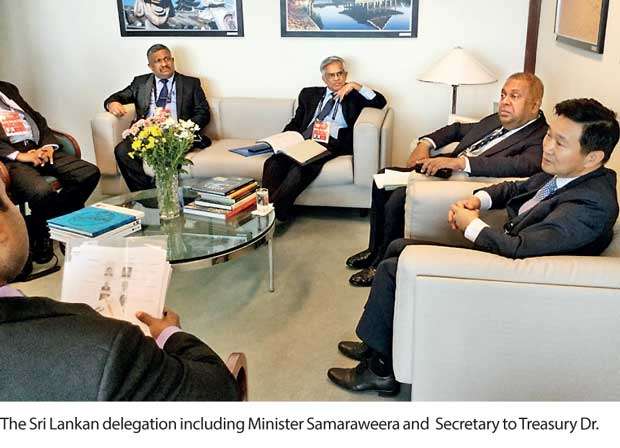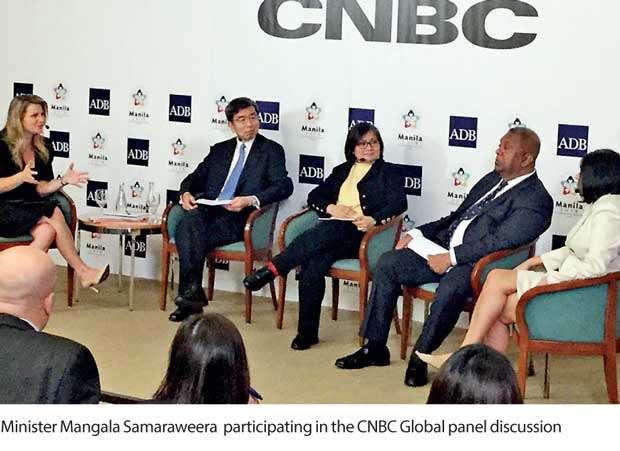05 May 2018 - {{hitsCtrl.values.hits}}


Minister of Finance and Media Mangala Samaraweera who is currently attending the 51st Annual meeting of the Asian Development Bank (ADB) in Manila held discussions with In-Chang Song, an Executive Director of the Board of ADB at the ADB Headquarters yesterday.
The ADB programme in Sri Lanka has provided loans, grants and technical assistance to boost the country’s economy and improve the lives of people, particularly the poor, women, children and other vulnerable groups.
ADB has worked closely with Sri Lanka since 1966, signing loans, grants, and technical assistance totaling US$9.1 billion as of 31 December 2017.
The government, formed following the presidential and general elections in January 2015 and August 2015 respectively is focused on inclusive growth, good governance, and private sector development.
Over the next 5 years, ADB will contribute to the Government of Sri Lanka’s key development goals of job creation, income enhancement, rural economic development, knowledge formation, and economic diversification (including export development).
Both sides agreed at the meeting to accelerate ongoing bilateral projects, which currently surpass US$ 3.6 billion.
The Sri Lankan delegation to the ADB conference includes Secretary to Treasury Dr. R.H.S. Samaratunga and other senior officials from the budget department and the ERD.
Meanwhile, Finance Minister Mangala Samaraweera was among a four-member panel that discussed ‘Technology for Change’ live on CNBC Global yesterday on the sidelines of the 51st Annual Meeting of the Asian Development Bank.
The other panelists were Takehiko Nakao, President of the ADB, Minnette Navarette, President of Kickstart Ventures, and Nandita Parshad, Managing Director of the European Bank for Reconstruction and Development, who were engaged in a debate by CNBC’s Anchor Oriel Morrison.
The discussion focused on the emerging new technologies and the impact of such advanced systems on developing societies particularly on employment generation. Robotics and Artificial Intelligence were identified as new areas of concern, but the panelists agreed that better educated well-trained youth will be able to adjust to these changes if governments are encouraged to steer educational systems fitting to contemporary demands of the global job markets.
18 Nov 2024 1 hours ago
18 Nov 2024 1 hours ago
18 Nov 2024 2 hours ago
18 Nov 2024 6 hours ago
18 Nov 2024 7 hours ago